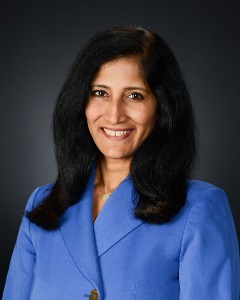
Vasu Appalaneni, MD, MBA, FASGE
EVP Clinical Innovation at One GI
Artificial intelligence (AI) has been a fast-advancing technology in the last few years, and its implications in health care have been rapidly emerging. AI has the potential to revolutionize health care and improve patient outcomes. While there are many available resources to learn about this technology, it is worthwhile for every health care professional to understand the basics of what it does, how to use it and what to watch for.
AI has been in existence since the 1950s as a computer program that simulates human cognition, learning and problem-solving. It was in the 1980s that machine learning (ML), computer-based methods analyzing data, and prescriptive and predictive models came into play. In 2010, deep learning, an ML method utilizing complex artificial neural networks, came into play, and since 2022, when ChatGPT launched, generative AI has been widely available. How we practice medicine in the next decade will be different than how we practiced it in the last two decades; there will be more emphasis on patient experiences, value-based care and integration of AI-like technology for best practices.
As health care professionals, physicians benefit from understanding how AI algorithms are created and how these algorithms, based on large datasets, affect the outputs generated, which, in turn, affect patient outcomes. Physicians play a key role in multidisciplinary teams, along with data scientists, policymakers, ethicists and patient representatives, as we create the algorithms.
AI algorithms are typically created using large training datasets in a black box and are subject to bias and incomplete information, which can lead to health care disparities. Rather, the training data should be diverse, representative and free from bias to mitigate these disparities and underrepresentation of certain populations. As subject matter experts, physicians are crucial to the development of AI methodologies and can contribute key insight that benefits our patients, helping us make better decisions as we individualize treatment options for different patients. Input variables should be chosen carefully, appreciating the factors that can affect the outcome. Health care professionals should work hand-in-hand with industry developers and sponsors to create a larger impact and use of this technology.
Governance of AI in health care is needed with frameworks, regulations and guidelines to ensure the development and optimal use of AI systems. Governance is also necessary for data privacy, security, transparency, accountability and informed consent. National GI societies have been actively involved in developing governance protocols. The American Society for Gastrointestinal Endoscopy (ASGE) AI Task Force, for instance, has developed a framework1 to enable this process. If the AI algorithm is flawed, and the training data do not represent the population being treated, the results can lead to inaccurate diagnosis.
Gastroenterology has been one of the early adopters of this technology, incorporating computer-aided polyp detection technologies in several private practice and academic settings. This has given patients in different corners of the country access to the technology, promoting health equity. AI in GI has gained popularity in multiple disease states, such as Barrett’s esophagus, colon polyp detection, IBD surveillance, GI bleeding, pancreatic cancer, chronic liver disease, advanced endoscopic procedures (e.g., endoscopic ultrasound), endoscopic retrograde cholangiopancreatography, pathology and GI imaging. AI has also been incorporated into physician practices to improve practice operations, revenue cycle management, timely billing to help with reducing denials, optimization of patient flow in endoscopy units and clinics, demand and supply prediction, seasonal changes to enable efficient staffing, processes to avoid redundant tasks, inventory management, automation, reduction of readmission rates for our inpatients and transcriptive AI services.
AI can also help us analyze significant amounts of data, including genetic information, medical records, lifestyle and behavioral patterns, and develop precision medicine to create personalized treatment plans and targets for drug development. AI can also help with data processing, patient monitoring and pattern recognition. Telemedicine platforms can leverage AI for patient triage, symptom assessment and remote consultations, extending health care delivery to remote areas serving underserved populations. As a patient advocate and adopter of technology, physician input plays an integral part in determining the need and development of different AI models.
Generative AI and large language models (LLM) have been making their way into health care, and many firms are continuing to work on improving and making it available to everyone. LLMs can enable patient education and engagement, clinical decision support, research assistance and mental health support. It is our responsibility to ensure the technology is used wisely, fairly, accurately and in an explainable and meaningful way, as these are also subject to limitations and ethical considerations.
Though AI has been integrated into our daily lives immensely, the value of human interaction in health care cannot be underrated when we use AI technologies to enable patient care. Our patients still need the touch, feel, experience, empathy, oversight, critical thinking and final decision-making by physicians and advanced practice providers. Significant strides can be made if we can leverage the technology for its best use: concentrating on a patient-centric model of care in the most cost-effective way.
References:
- Parasa S, Repici A, Berzin T, Leggett C, Gross SA, Sharma P. Framework and metrics for the clinical use and implementation of artificial intelligence algorithms into endoscopy practice: recommendations from the American Society for Gastrointestinal Endoscopy Artificial Intelligence Task Force. Gastrointest Endosc. 2023;97:815-824.e.1. doi: 10.1016/j.gie.2022.10.016
Dr. Appalaneni is an advanced endoscopist with expertise in endoscopic ultrasound, practicing in Dayton, Ohio, since 2007. She is currently the executive vice president of clinical innovation at One GI. She served as the practice board member and treasurer for Dayton Gastroenterology Inc. for over 15 years. Dr. Appalaneni was instrumental in the group’s growth, organically and through the merger of local groups, and the recent merger and acquisition with national One GI. She has served on the ASGE Standards of Practice Committee and currently serves on the ASGE Practice Operations Committee.